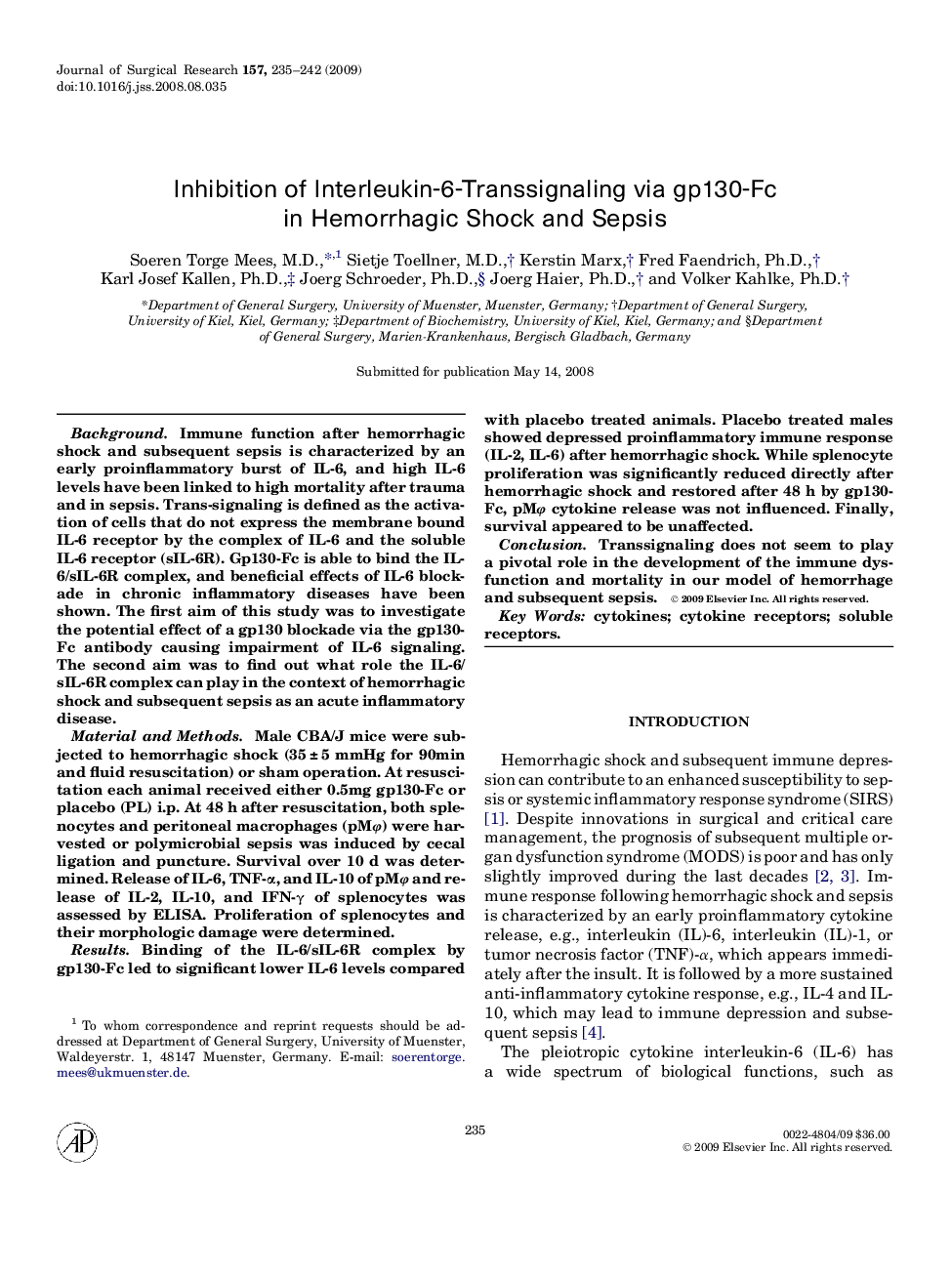| کد مقاله | کد نشریه | سال انتشار | مقاله انگلیسی | نسخه تمام متن |
|---|---|---|---|---|
| 4303296 | 1288476 | 2009 | 8 صفحه PDF | دانلود رایگان |

BackgroundImmune function after hemorrhagic shock and subsequent sepsis is characterized by an early proinflammatory burst of IL-6, and high IL-6 levels have been linked to high mortality after trauma and in sepsis. Trans-signaling is defined as the activation of cells that do not express the membrane bound IL-6 receptor by the complex of IL-6 and the soluble IL-6 receptor (sIL-6R). Gp130-Fc is able to bind the IL-6/sIL-6R complex, and beneficial effects of IL-6 blockade in chronic inflammatory diseases have been shown. The first aim of this study was to investigate the potential effect of a gp130 blockade via the gp130-Fc antibody causing impairment of IL-6 signaling. The second aim was to find out what role the IL-6/sIL-6R complex can play in the context of hemorrhagic shock and subsequent sepsis as an acute inflammatory disease.Material and MethodsMale CBA/J mice were subjected to hemorrhagic shock (35 ± 5 mmHg for 90min and fluid resuscitation) or sham operation. At resuscitation each animal received either 0.5mg gp130-Fc or placebo (PL) i.p. At 48 h after resuscitation, both splenocytes and peritoneal macrophages (pMφ) were harvested or polymicrobial sepsis was induced by cecal ligation and puncture. Survival over 10 d was determined. Release of IL-6, TNF-α, and IL-10 of pMφ and release of IL-2, IL-10, and IFN-γ of splenocytes was assessed by ELISA. Proliferation of splenocytes and their morphologic damage were determined.ResultsBinding of the IL-6/sIL-6R complex by gp130-Fc led to significant lower IL-6 levels compared with placebo treated animals. Placebo treated males showed depressed proinflammatory immune response (IL-2, IL-6) after hemorrhagic shock. While splenocyte proliferation was significantly reduced directly after hemorrhagic shock and restored after 48 h by gp130-Fc, pMφ cytokine release was not influenced. Finally, survival appeared to be unaffected.ConclusionTranssignaling does not seem to play a pivotal role in the development of the immune dysfunction and mortality in our model of hemorrhage and subsequent sepsis.
Journal: Journal of Surgical Research - Volume 157, Issue 2, December 2009, Pages 235–242